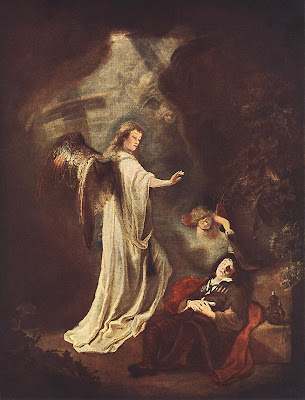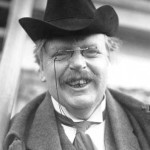 Genesis 46
Genesis 46
Jacob Goes to Egypt
1 So Israel set out with all that was his, and when he reached Beersheba, he offered sacrifices to the God of his father Isaac.
2 And God spoke to Israel in a vision at night and said, “Jacob! Jacob!”
“Here I am,” he replied.
3 “I am God, the God of your father,” he said. “Do not be afraid to go down to Egypt, for I will make you into a great nation there. 4 I will go down to Egypt with you, and I will surely bring you back again. And Joseph’s own hand will close your eyes.”
The Lord speaks to Jacob with his trademark greeting, “Do not be afraid.”
The Lord speaks to Jacob with his trademark greeting, “Do not be afraid.”
His ability to hear God’s voice–even in the middle of his own sin and scheming–was one of Jacob’s greatest gifts–and this he retains through life.
And God’s kindness to Jacob remains throughout his long life.
At Beersheba, where Abraham and Isaac had also worshiped the Lord, the Lord reiterates his covenant promises.
God would be with Jacob when he went south to Egypt, as he was with him when he went north to Haran.
5 Then Jacob left Beersheba, and Israel’s sons took their father Jacob and their children and their wives in the carts that Pharaoh had sent to transport him. 6 So Jacob and all his offspring went to Egypt, taking with them their livestock and the possessions they had acquired in Canaan. 7 Jacob brought with him to Egypt his sons and grandsons and his daughters and granddaughters—all his offspring.
8 These are the names of the sons of Israel (Jacob and his descendants) who went to Egypt:
Reuben the firstborn of Jacob.
9 The sons of Reuben:
Hanok, Pallu, Hezron and Karmi.
Hanok, Pallu, Hezron and Karmi.
10 The sons of Simeon:
Jemuel, Jamin, Ohad, Jakin, Zohar and Shaul the son of a Canaanite woman.
Jemuel, Jamin, Ohad, Jakin, Zohar and Shaul the son of a Canaanite woman.
11 The sons of Levi:
Gershon, Kohath and Merari.
Gershon, Kohath and Merari.
12 The sons of Judah:
Er, Onan, Shelah, Perez and Zerah (but Er and Onan had died in the land of Canaan).
The sons of Perez:
Er, Onan, Shelah, Perez and Zerah (but Er and Onan had died in the land of Canaan).
The sons of Perez:
Hezron and Hamul.
14 The sons of Zebulun:
Sered, Elon and Jahleel.
Sered, Elon and Jahleel.
15 These were the sons Leah bore to Jacob in Paddan Aram,[c] besides his daughter Dinah. These sons and daughters of his were thirty-three in all.
16 The sons of Gad:
Zephon,[d] Haggi, Shuni, Ezbon, Eri, Arodi and Areli.
Zephon,[d] Haggi, Shuni, Ezbon, Eri, Arodi and Areli.
17 The sons of Asher:
Imnah, Ishvah, Ishvi and Beriah.
Their sister was Serah.
The sons of Beriah:
Imnah, Ishvah, Ishvi and Beriah.
Their sister was Serah.
The sons of Beriah:
Heber and Malkiel.
18 These were the children born to Jacob by Zilpah, whom Laban had given to his daughter Leah—sixteen in all.
19 The sons of Jacob’s wife Rachel:
Joseph and Benjamin. 20 In Egypt, Manasseh and Ephraim were born to Joseph by Asenath daughter of Potiphera, priest of On.[e]
Joseph and Benjamin. 20 In Egypt, Manasseh and Ephraim were born to Joseph by Asenath daughter of Potiphera, priest of On.[e]
21 The sons of Benjamin:
Bela, Beker, Ashbel, Gera, Naaman, Ehi, Rosh, Muppim, Huppim and Ard.
Bela, Beker, Ashbel, Gera, Naaman, Ehi, Rosh, Muppim, Huppim and Ard.
22 These were the sons of Rachel who were born to Jacob—fourteen in all.
23 The son of Dan:
Hushim.
Hushim.
24 The sons of Naphtali:
Jahziel, Guni, Jezer and Shillem.
Jahziel, Guni, Jezer and Shillem.
25 These were the sons born to Jacob by Bilhah, whom Laban had given to his daughter Rachel—seven in all.
26 All those who went to Egypt with Jacob—those who were his direct descendants, not counting his sons’ wives—numbered sixty-six persons. 27 With the two sons[f] who had been born to Joseph in Egypt, the members of Jacob’s family, which went to Egypt, were seventy[g] in all.
28 Now Jacob sent Judah ahead of him to Joseph to get directions to Goshen. When they arrived in the region of Goshen, 29 Joseph had his chariot made ready and went to Goshen to meet his father Israel. As soon as Joseph appeared before him, he threw his arms around his father[h] and wept for a long time.
Joseph, the great and soft of heart.
30 Israel said to Joseph, “Now I am ready to die, since I have seen for myself that you are still alive.”
31 Then Joseph said to his brothers and to his father’s household, “I will go up and speak to Pharaoh and will say to him, ‘My brothers and my father’s household, who were living in the land of Canaan, have come to me. 32 The men are shepherds; they tend livestock, and they have brought along their flocks and herds and everything they own.’ 33 When Pharaoh calls you in and asks, ‘What is your occupation?’ 34 you should answer, ‘Your servants have tended livestock from our boyhood on, just as our fathers did.’ Then you will be allowed to settle in the region of Goshen, for all shepherds are detestable to the Egyptians.”
Joseph uses his God-given administrative skills to ensure that his family settles safely in Egypt. He decides that Goshen would be the best location for them (thus preventing them assimilating into Egyptian society) and through skilful preparation and diplomacy, he ensures that Pharaoh confirms this choice of territory.
Read my new memoir: Rosaries, Reading, Secrets: A Catholic Childhood in India (US) or UK.
Connect on Facebook: https://www.facebook.com/anitamathiaswriter/
Instagram: https://www.instagram.com/anita.mathias/
Twitter: https://twitter.com/AnitaMathias1
My book of essays: Wandering Between Two Worlds (US) or UK





